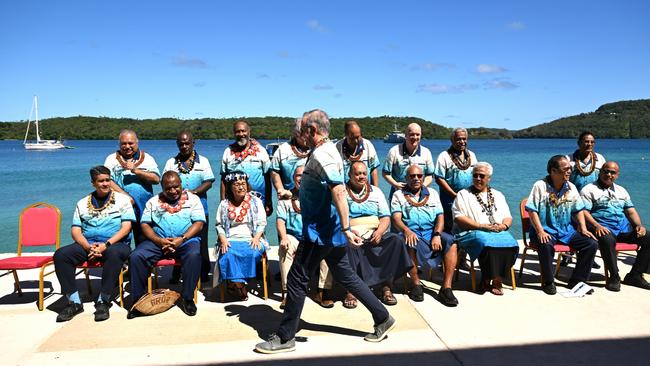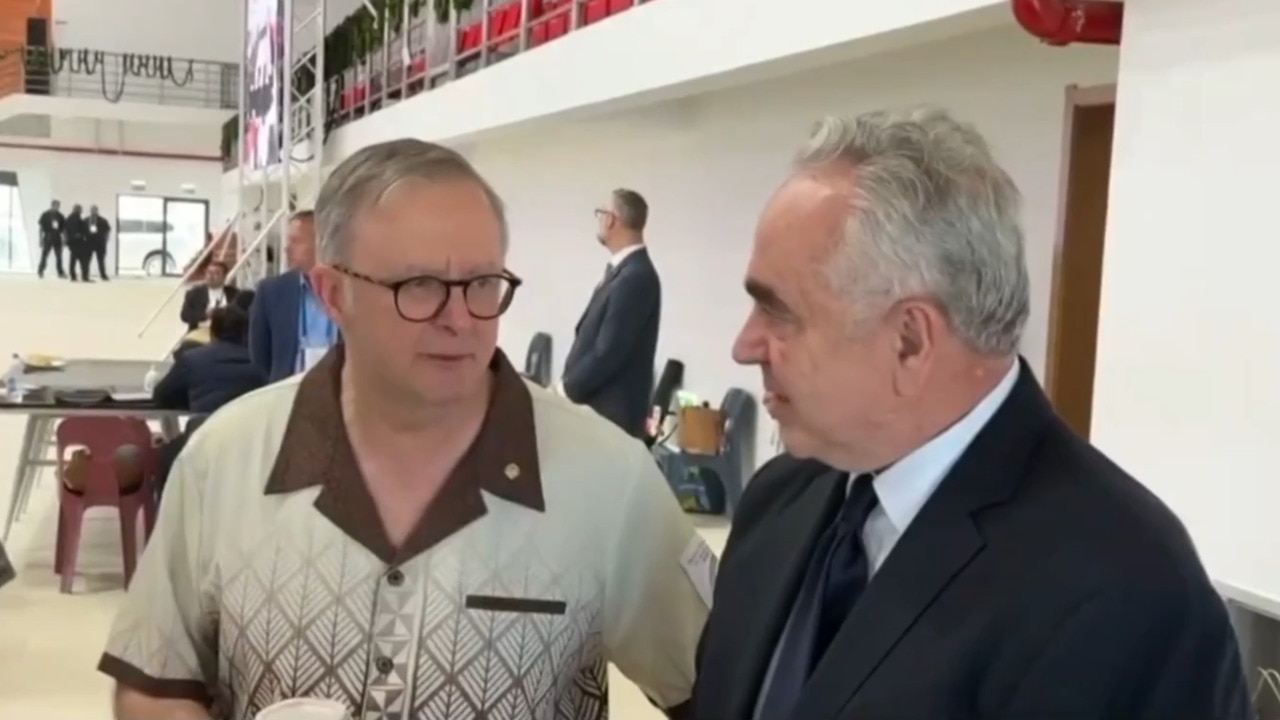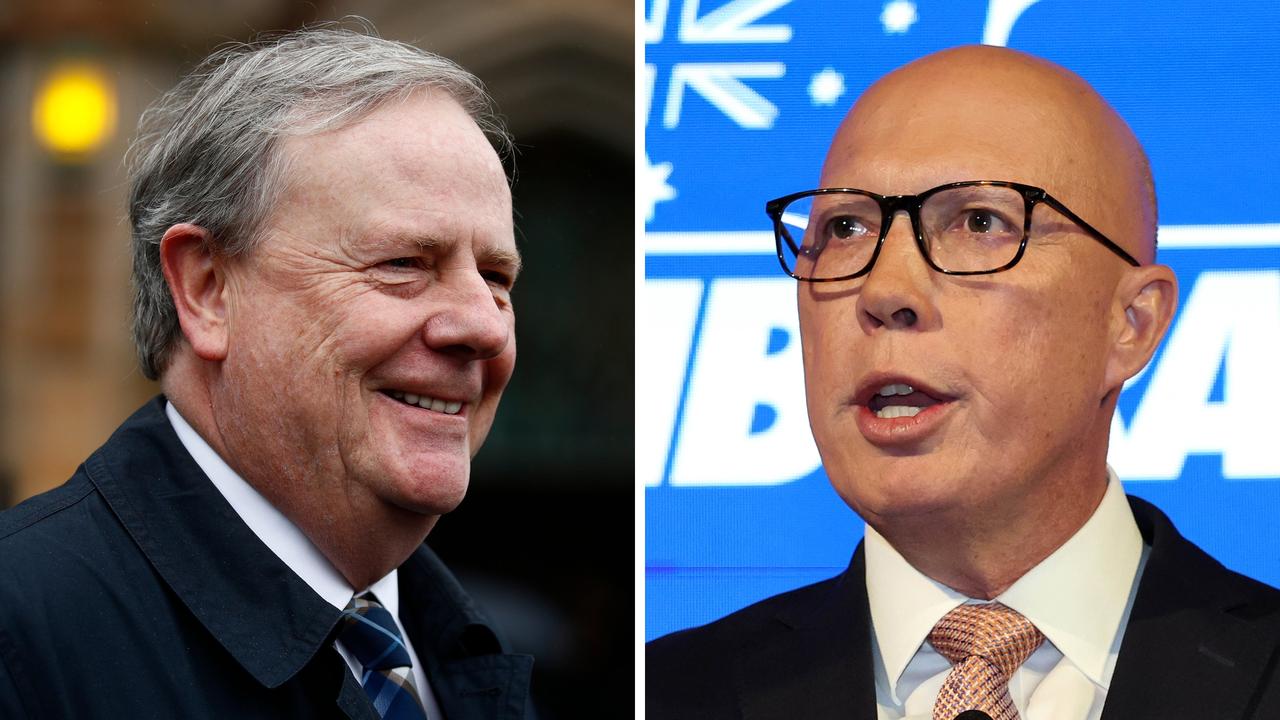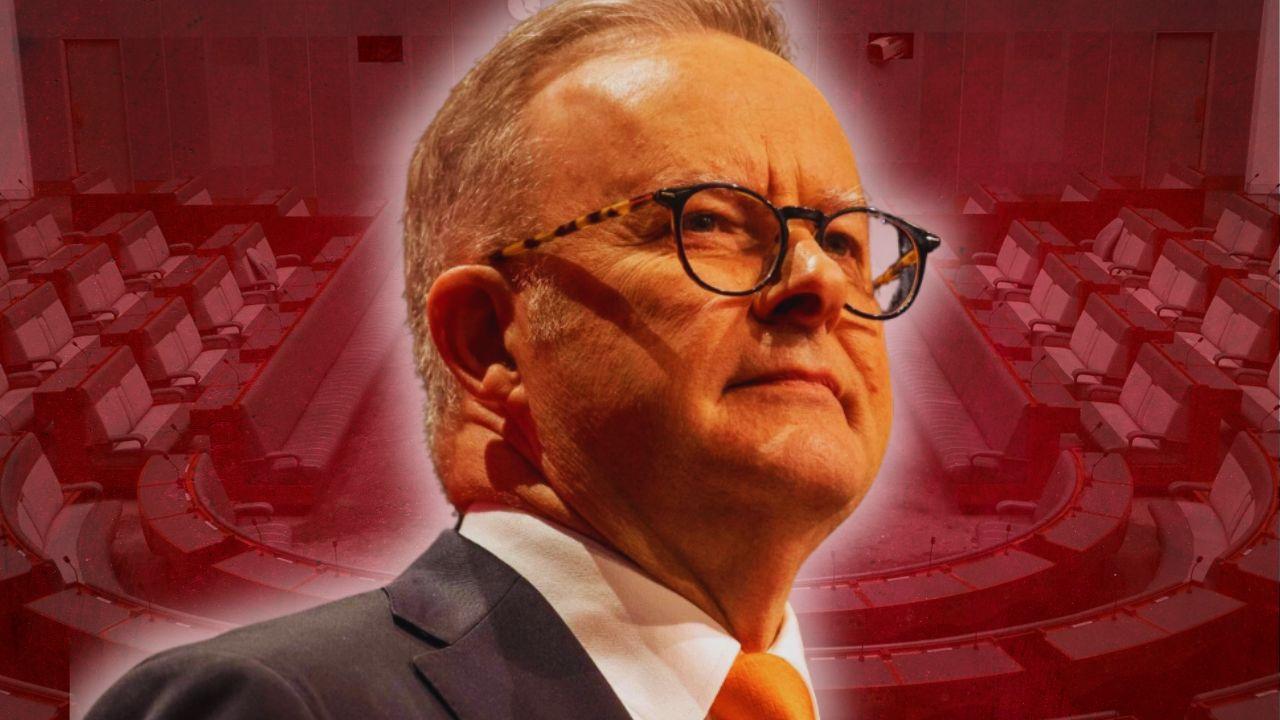Hot mic reveals delicate diplomacy on Pacific plan
A top US diplomat has revealed the US shelved a major policy initiative at the Pacific Islands Forum to give Australia clear air for a landmark policing strategy to limit Chinese influence in the region.

A leading American diplomat has revealed that the US shelved a major policy initiative at the Pacific Islands Forum to give Australia clear air for a landmark policing strategy to limit Chinese influence in the region.
The disclosure, in a hot mic incident with Anthony Albanese in Tonga, offered a rare insight into the co-ordinated diplomacy being waged by Australia and the US to push back against Beijing in the Pacific.
The Prime Minister was outraged that a New Zealand journalist videoed his conversation with Joe Biden’s No. 2 diplomat Kurt Campbell, in which he suggested the US “go us halvies” on the cost of a new $400m Pacific policing deal.
Mr Albanese was jubilant at sealing the deal in the Tongan capital, Nuku’alofa, describing it as “a cracker” in footage recorded without his or Dr Campbell’s knowledge.
He accused the reporter of having questionable ethics, but strategic experts were more focused on the US Deputy Secretary of State’s comments.
Dr Campbell told Mr Albanese “I talked to Kevin about it”, referring to Australia’s Ambassador to the US, Kevin Rudd.
“We were going to do something but he asked us not to, so we did not. We have given you the lane. Take the lane,” he said.
It’s unclear whether the US had planned its own policing announcement but the exchange was focused on security support for the region.
US Studies Centre foreign policy program director Peter Dean said it showed “the level of trust, engagement, and co-ordination between the two countries” when it came to advancing shared goals in the region.

“It reveals our mutual interests, that our ambassador focused with Kurt on what the issues were, and that the US stepped back to give us the scope to follow our plans,” Professor Dean said.
Blake Johnson, a senior analyst at the Australian Strategic Policy Institute, said the conversation showed “a degree of self-awareness” on how the allies could best support the region.
“Partners like Australia and the US know that the best way they can help the Pacific is to deconflict their offers of support and be transparent about initiatives being planned and discussed,” he said. “If they don’t, too many partners with good intentions can overwhelm Pacific leaders and governments with endless meetings and discussions about similar offers of support.”
The Lowy Institute’s Mihai Sora said the video revealed a misunderstanding by the US over the importance that Pacific countries placed on the region looking after its own needs. “Fundamentally, it is not the US’s ‘lane’ to give,” he said. “It is Pacific Island countries that are custodians of the region, and that’s why Australia has conducted painstaking diplomacy for these last few years to progress this initiative.”
The Australian contacted Dr Rudd but he declined to comment on discussions with Dr Campbell.
Radio New Zealand’s Lydia Lewis recorded the conversation on the floor of the forum’s main conference venue that was open to the media.
She posted a story about the exchange on RNZ’s website, saying she had been recording “cutaways” – generic footage used for editing purposes.
Mr Albanese accused Lewis of “coming up behind” him to record the exchange without identifying herself.
“It is up to them, whoever did that, to think about their own ethics when it comes to journalism,” he said. “It was private conversation, it was a jovial conversation and a friendly one.”
He said Dr Campbell was “a mate of mine”, while disputing that the US had held off on an announcement at the forum to avoid upstaging Australia’s policing deal.
“He didn’t say that,” Mr Albanese said, despite Dr Campbell’s clear comments to the contrary.
Opposition home affairs spokesman James Paterson accused Mr Albanese of “picking on some young New Zealand journalist” when he should have been more discreet.
“If he’s having unguarded conversations, that’s his responsibility, not the journalist’s,” he told Sky News.
Radio New Zealand chief news officer Mark Stevens backed the conduct of the network’s specialist Pacific journalist.
“RNZ stands by its reporter and its reporting. Having spoken to our reporter, there is nothing to suggest they acted unethically or outside of our rigorous editorial policies,” he said.
The new Pacific policing agreement will establish a regional police response group to deal with natural disasters, civil unrest and major events, along with at least four new police training centres across the region.
Mr Albanese joined regional counterparts at a private retreat on Thursday to hammer out a final communique from the forum, which concluded without major controversy.
The statement was yet to be finalised before he departed for Australia, but was expected to green-light a forum delegation to strife-torn New Caledonia, where indigenous Kanaks have waged a long-running independence push against French rule.
The statement was also expected to reiterate the importance of meaningful climate change action.




To join the conversation, please log in. Don't have an account? Register
Join the conversation, you are commenting as Logout